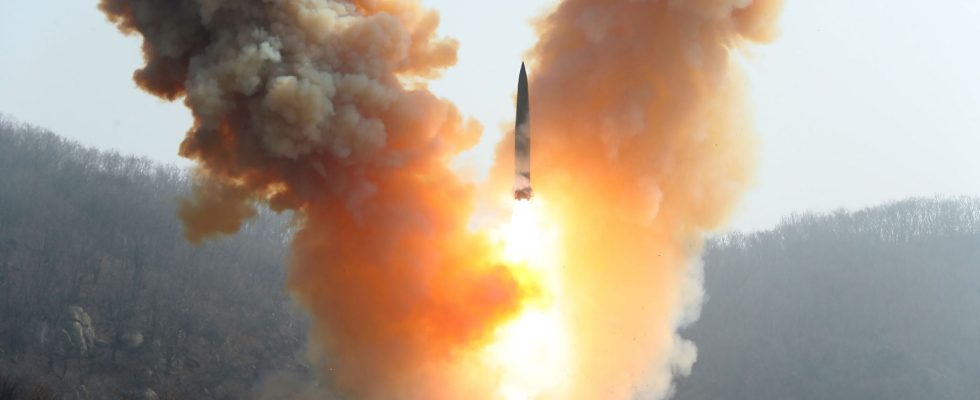The South Korean military claims that North Korea sent at least one ballistic missile this Sunday, December 17, towards the East Sea, also known as the Sea of Japan. “The North fired one or more unidentified ballistic missiles toward the East Sea,” South Korea’s Joint Chiefs of Staff said in a statement, without giving further details. This missile launch comes on the anniversary of the death of North Korean leader Kim Jong Un’s father, Kim Jong Il, who died on December 17, 2011. Last year, North Korea announced a new doctrine making “irreversible” its status as a nuclear power, and authorizing it to carry out a preventive atomic strike in the event of an existential threat against its regime.
Washington responds
The test comes as Seoul and Washington have warned Pyongyang that any nuclear attack against the United States and South Korea would bring about the end of North Korean rule. The two allies participated in the second session of the Nuclear Advisory Group in Washington on Friday, focused on nuclear deterrence in the event of conflict with the North. This was an opportunity for the United States to reaffirm its “unwavering commitment” to Seoul, relying on “all American capabilities, including nuclear” to exercise a “deterrent” force, declared the White House in a statement, promising a “rapid, overwhelming and resolute response.”
In April 2023, American President Joe Biden and his South Korean counterpart Yoon Suk Yeol, then visiting Washington, had already warned Pyongyang against a “nuclear response” and the “end” of the regime if the latter used its own arsenal.
South Korea, an ally of the United States and Japan on this issue, had again warned North Korea on Wednesday December 13 that it would suffer “terrible destruction” if it engaged in “reckless” actions in the Korean peninsula. On Thursday, the South Korean military announced it had deployed fighter jets when two Chinese military planes and four Russian military planes penetrated its air defense zone.
Pyongyang and Moscow: “growing and dangerous” ties
On Saturday December 9, Seoul, Tokyo and Washington announced “new trilateral initiatives” to counter Pyongyang, including an operation to share real-time data on North Korean missile launches. The three allies also reiterated their commitment to “freedom of navigation” in the disputed area of the South China Sea and increased the passage of military ships, arousing the anger of Beijing. Washington warned last month that military ties between Pyongyang and Moscow were particularly “growing and dangerous”, with Russia as well as China being traditional allies of North Korea.
The latter advances its pawns. It put its first spy satellite into orbit last month, after threatening the United States and South Korea with being “on the brink of nuclear war” on the peninsula. North Korea enshrined its status as a nuclear state in the Constitution in September. In November, Washington and Seoul revised, for the first time in a decade, their 2013 strategic military agreement to allow these two allies to “deter and respond more effectively to the development of nuclear capabilities” of Pyongyang.
